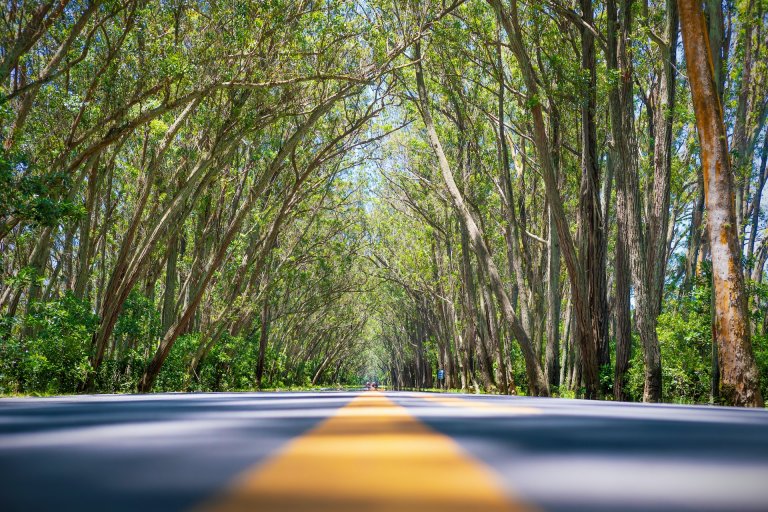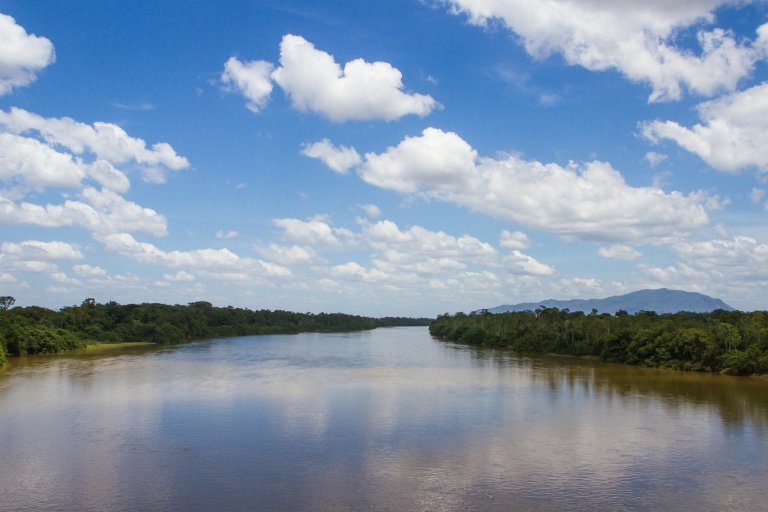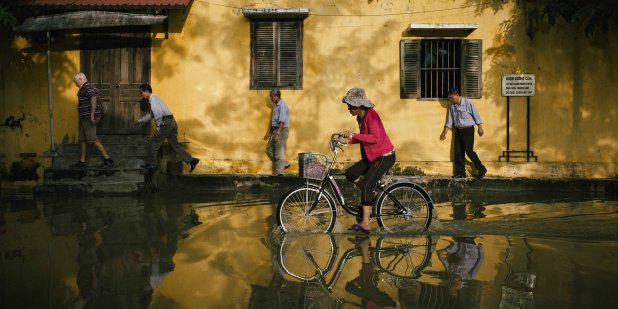- About
- Topics
- Picks
- Audio
- Story
- In-Depth
- Opinion
- News
- Donate
-
Signup for our newsletterOur Editors' Best Picks.Send
Read, Debate: Engage.
The Loss and Damage Fund, which was approved in the last minutes of COP27, was received with joy by delegations from Latin American countries - which are collectively responsible for less than 10 percent of global greenhouse gas emissions but face some of the worst effects of the climate emergency. But activists and NGOs warn that actual implementation can still be challenging.

During COP27, which was held in Egypt, Brazil starred in one of the most awaited moments of the event, when president-elect Luiz Inácio Lula da Silva took the stage. While the official delegation representing outgoing president Jair Bolsonaro's administration remained mostly invisible to the media, Lula appeared as a world saviour for his pledge to protect Brazilian biomes, including the Amazon Forest. He even suggested that a future COP should be held in Brazil in order to get world leaders closer to the forest.
Former Minister of the Environment, Marina Silva - also representing an extra-official governmental delegation since inauguration will be only on 1 January 2023 - actively participated in the event as well. The general feeling was that Brazil is back in the game, after four years of playing the environmental villain on the international stage.
The upcoming administration had already committed to take strong actions to reduce and eventually end deforestation in Brazil’s biomes, and to advance the guaranteeing of indigenous people's rights. However, for Brazilian environmental engineer and political activist João Cerqueira, who participated in COP - representing the Instituto Clima de Eleição, carrying out this pro-environmental agenda in practice will require more than good intentions.
"Firstly, we did not have an electoral result in 2022 favourable to leaders who guide the socio-environmental agenda,” Cerqueira told FairPlanet. “Almost all parliamentary leaders engaged with this agenda were not re-elected.”
He added, "Secondly, a significant part of the population believes in the values of what has been done in the last four years. This means that there is a strong anti-environmental culture in our society, which understands that predatory developmentalism is the ideal path."
Other Latin American nations played strategic roles in the summit as well. Adrián Martínez Blanco, director and founder of La Ruta del Clima, a Costa Rican NGO that advocates for the public's right to participate in the climate governance process, confirmed that delegations from this part of the globe had joined in to call for climate justice.
"This collective effort was fundamental,” Blanco said. “The leadership of countries such as Colombia, Mexico and Chile was essential, since their negotiators and politicians positioned themselves at the centre of the debate," Blanco added, admitting that Costa Rica did not play as prominent a role as its neighbours. "Costa Rica's negotiating team has been severely reduced. However, we know that even so they tried to maintain a presence in the discussions of their regional negotiating group."
Cerqueira, who has been keeping up with Brazilian politicians and will take part in the legislative transition in the country and advise new parliamentarians on a climate agenda, stated that Latin American countries historically acted in smaller coalitions, mainly between those sharing some common characteristics. This has been slowly changing, however, he said, noting that there is potential for increased unity in the upcoming years.
"In the first week, a declaration was launched by the countries of Latin America and the Caribbean - which does not include Brazil - aligning guidelines and affirming that there would be this action in group," he highlighted. Moreover, he added, "most Latin American countries at the moment have transitioned to a similar progressive left ideological line, and this promotes greater cooperation between these countries." The new Brazilian president is predicted to take part in this growing alliance as well.
For Benjamín Carvajal, a young Chilean activist who represented the NGO Uno.Cinco at COP27, the role of Latin America is still much smaller than it should be, despite slight advances within the past few years - including the presence of Latin American women in prominent discussions, such as Christiana Figueres and Patricia Espinosa, two former Executive Secretary of the United Nations Framework Convention on Climate Change (UNFCCC).
"Latin America is very invisible. Internationally it is not being considered as it should be, being that we are one of the largest ecosystem holders on the planet," Carvajal said.

Brazilian President-elect Lula da Silva suggested that a future COP should be held in Brazil in order to get world leaders closer to the Amazon forest. © Jose Eduardo Camargo
In addition to the official participation of global and Latin American leaders, another highlight of this COP was the sizable attendance of civil society representatives, including members of NGOs and young activists. Their presence was important in pushing the ambition of commitments further and "really [putting] all the cards on the table," Carvajal observed. He added that somehow "COPs have become a space where many companies, countries, the private sector and civil society go with practices that are quite carbon-intensive," a point of view shared also by Cerqueira, who noticed a large number of lobbyists from fossil fuel companies attending the event.
Nonetheless, Cerqueira celebrated the greater participation of youths compared to previous summits (which rose from a dozen to hundreds) as well as the significant presence of groups of black people. One such group is Brazil's Hub, which presented several proposals for Lula's upcoming administration.
"But, despite the very large number, not necessarily all of these people have a strategic agenda at the COP,” added the activist. “And this is the parallel I draw with lobbyists: it is very difficult to have the same level of professionalism to make political advocacy as a lobbyist, considering that civil society has immense challenges to be able to finance and make the logistics to participate in these events feasible and, when it gets there, it has other challenges to overcome.”
Blanco from Costa Rica also mentioned the challenges faced by civil society, particularly during this last COP in Egypt, where human rights are not respected and spaces for actual participation were blocked. Due to harassment against journalists, activists and even country delegations, there was no space for freedom of expression, Blanco said.
Despite this, he observed that "activists from the Global South stood up fighting against intimidation and the denial of spaces to demand justice and a fund to deal with damages and losses," which is important because, "without environmental democracy, decisions lose legitimacy and distance themselves from the pragmatic needs of our society."
Needless to say that the Loss and Damage Fund, which was eventually agreed upon by wealthy nations to help the most vulnerable ones handle the effects of climate change, was the highlight of COP27, while commitments on the mitigation of greenhouse gas emissions continued to disappoint.
Nonetheless, all of the specialists who spoke to FairPlanet agreed that the deal is still far from becoming a reality, as it is not clear who is going to contribute, how much money will be allocated and to whom and how the resources will be distributed. All of these decisions are likely to be announced just after COP28, a year from now.
"In the following years we must materialise this fund, and its success depends on these funds reaching the hands of those who have been paying for decades for the adverse impacts of climate change,” said the director of La Ruta del Clima in Costa Rica. “The fund to deal with damages and losses is the first step towards compensation and climate justice.”
But he warns: "We have to keep in mind that the transfer of these funds to the affected communities must take place as a consequence of a legal responsibility for the cross-border environmental damage that they have caused in our territories from the north."
Though recognising the fund as a great advance, Cerqueira from Brazil recalled that other similar deals had already been sealed - remarkably the Green Climate Fund, in which wealthy nations agreed to allocate 100 billion dollars per year - with no further actions; just empty words.
In the near future, he said, substantial action is required. "On the path that the selfishness of the large economies takes us, 1.5 Celsius degrees does not seem to be viable. The climate risk of such irresponsibility is still being assumed by the vulnerable countries of the Global South,” Blanco added. “And that is why the damage and loss fund comes to fend off this cycle of structural violence by introducing negative externalities into the economic system.”
Image by Julian.
